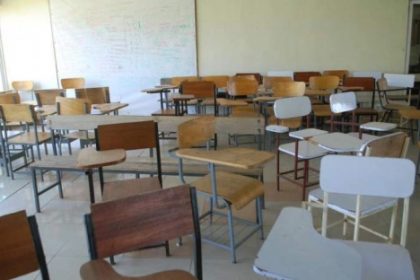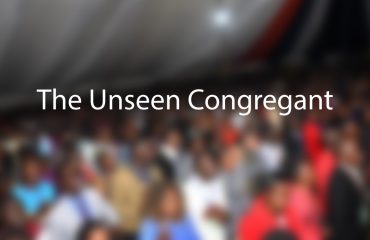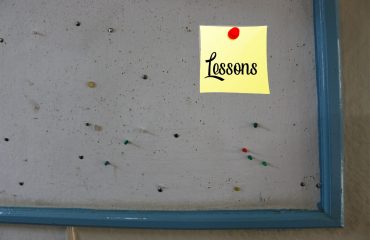
In the past decade, 1st of March would find most of the public university students revising for their end-of-second-semester exams. Soon after, the first year students would enjoy a four months’ recess while the senior students would be busy in their industrial attachment. Such stories sound like old tales to the current crop of varsity learners. For two years in a row, the university students have been subjected hugely to disrupted learning. Consequently, students on campus have been like sheep without a shepherd because of the ongoing University Lecturers’ strike. Cumulatively, University learning halted for 142 days and counting for the past one and half years.
It is now a blame game between the government and the dons. As they say, when two bulls fight, it is the grass that suffers. In the case of the perpetual lecturers’ strikes, the university students have become the highest casualties. Their agony ranges from uncertainty, fear, financial strain, emotional torture, to despair. The parents and guardians of these students bear the pain and the painful effects as well.
According to an online survey conducted among students in Fellowship of Christian Unions with a few outliers who are likely to complete a four-year course in six or seven years, nearly half of the students will complete their university education at least a year later than the anticipated time.
The implications of these strikes are graver than the face value effects frequently discussed on the media. To begin with, many students have expressed fear on when they will ever complete school. Most of the universities so far have never issued memos for closing the universities, even when learning is not happening. This makes the students be in conflict whether to go home or stay on campus. Therefore, students have been forced to spend “money for upkeep in school without any serious learning going on. The assumption is that students are in session!” laments a student at Moi University College of Health Science. His pain is shared across the board by the university students. The confusion among students is compounded by misrepresentation of the reality. For example, recently, a memo was issued by the Jomo Kenyatta University of Agriculture and Technology (Main Campus), informing the students that lectures were to resume on Monday 16th April 2018. Some of the students who had traveled home had to come back to the university only to find the issue of strike fully unresolved.
The stress levels as a result of these uncertainties are on the rise. Many students live on the little pocket money provided by their parents or guardians. Others hardly have enough resources for the semester, let alone paying for an extra month beyond the semester. A number of the students have admitted undergoing psychological torture: “It is frustrating, being that it is our final year of school and now it might not even be. I wonder what my purpose is if I can’t even finish school and graduate in time and start pursuing my dreams!” a bewildered student at the University of Nairobi wonders. To this end, besides the infamous “return-to-work formula” UASU should agitate for a strengthened counseling department in the Universities to debrief the students when normalcy is resumed. This article may not highlight some vices resulting from the idle and stressed students, but if the social media is anything to go by, revelry among the students might be the “interim university curriculum.” Once, when some students were interviewed on national television over the issue of strike, many echoed the phrase, “an idle mind is the devil’s workshop”, pointing to the psychological and social implications of such prolonged disruptions. The prolonged strike may lead to production of “half-baked” graduates. Already, there is debate on the quality of our education. The disruptions might as well entrench the claim of minimum standards in implementation of education.
From history, the universities have tended to adopt the crash program to mitigate against time lost due to disruptions. Adopting a crash program by itself flies in the face of certain standards. For example, it downplays the ideals in learning with regard to contact hours, learning activities, assignments, and research. Each learning activity is supposed to build upon another within a specified period. When the learning momentum is interfered with, the desired learning goal is distorted.
Many students interviewed agree that it is always challenging to gain momentum once the learning tempo has been slowed down. Unfortunately, under the prevailing circumstances, the lecturers and the students alike will be concerned about passing the exams more than anything else. At times lecturers have casually responded to students concerns over uncovered syllabi with “do not worry about that, it won’t be covered in the exams” attitude. Those running photocopying businesses are likely to enjoy a boom, thanks to the many handouts and past papers likely to be recommended by the lecturers. With that kind of teaching, we are not likely to restore confidence in our education.
Economically, we shall never recover the loss. “The strike is a waste of time. For example, some students have other siblings still in primary or secondary school and the parents have always kept in mind the day their son or daughter would graduate to give way for the young ones, but due to the strike, the time increases,” a student from Moi University Annex narrates. Students could have lost career opportunities such as scholarships, internships, industrial attachments, and possible employment.
Resources have been wasted as a result of the strikes. Let us make some reserved estimation of house rent and food that has gone to waste. In 2017 and 2018 alone, cumulatively, at least four months have been lost. The average expenditure for a student on rent, food and upkeep are Ksh. 7000-10000. Considering the current university population of at least 500, 000 students, approximately, Ksh. 14-20 Billion has gone to waste on rent and food alone; money enough to build 60 of the just-completed Ultra-Modern Eye and Dental Centre at Tenwek Hospital. Or better still money enough to pay the lecturers and have change!
It is unfair for the students and parents when the dons will go smiling all the way to the bank yet no one is talking about compensating the other affected stakeholders. Of course, it is not possible to recover time lost; time cannot be renewed unless NATO discovers a way to rotate the earth anti-clockwise to reverse time. Extending the semester’s dates is not recovering the time lost. That is why we need to move away from the industrial strikes; they only lead to unrecoverable losses. Could it be time we went the United Kingdom way, where University Students Union Leaders demanded compensation for the wasted resources?(https://www.theguardian.com/higher-education-network/2018/feb/07/students-demand-compensation-from-universities-over-lecturer-strikes).
Luckily, some students have taken advantage of the time to develop in other skills. Some have enrolled in short courses while others have considered part-time jobs. A number of them are enjoying quality time with their parents and friends. A few are taking a breather from the otherwise busy academic schedule to read other materials other than academically related work. However, these are the minority of the student’s population.
Business cannot be as usual when learning is paralyzed in our institutions of higher learning. This could be the surest way of destroying Kenya. If a lasting solution is not found, we are in for trouble. More stray surgeries are on the way; and more buildings and bridges are yet to collapse if a solution is not found soon. Let us arrest the situation before we get to the point of no return. The government together with UASU must listen and act. Everyone must rise towards finding a lasting solution because the effects though invisible now, will affect everyone.





It’s unfair for the students to go through all these! They need to be compensated.
I have nothing to say concerning this, when you and I get chance to serve in any position in this nation(kenya), let us make a difference,
Mean while, students be creative in one way or the other.
If the saying that the university is the mirror of the society is anything to go by, the leaders (in and out of government) have to show some responsibility and bring the strike to an amicable end. The tragic effects of this strike could just be more devastating than we could imagine. The devil’s workshop has never produced any virtuous merchandise. There are, however, beams of hope. I know of one student from Central Rift region who has taken this chance to organize a mission and mobilized 40 of her friends and colleagues to join. There certainly is a silver lining to this!